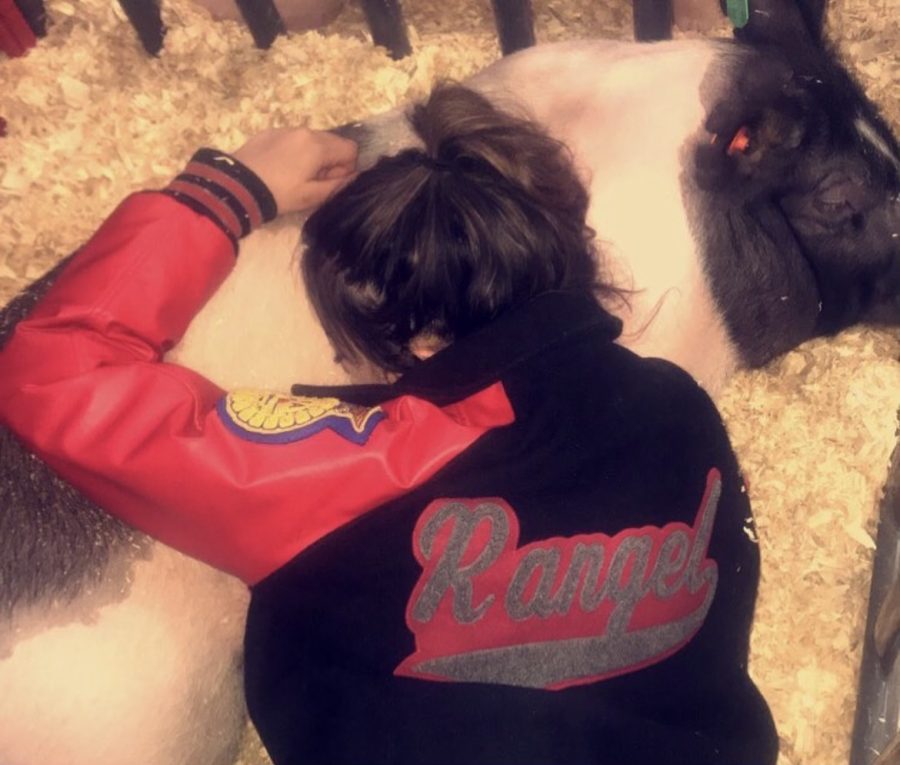The importance of Agricultural Education
Without agriculture, the world starves
This photo is from one of my high school county shows. This is me after a long day asleep in the pin my show gilt was in.
Growing up, I was surrounded by agriculture a whole lot more than I realized. Some of my earliest memories include being around my father and his race horses. It wasn’t until later in my life that my father started his own cattle operation. I hadn’t thought much on things like this because they were things I was so used to seeing and being around.
It was the agriculture classes I took my freshman year of high school where I truly learned to value my Ag background. I originally didn’t have any interest in being a part of classes like that, but I was also one of those kids who really hadn’t found their niche.
My brother was the one who really insisted I take part and join the FFA (formerly known as Future Farmers of America) program at my high school. Although I was originally hesitant to join, the national FFA organization really set the stepping stones for my future.
FFA’s mission statement is, “FFA makes a positive difference in the lives of students by developing their potential for premier leadership, personal growth and career success through agricultural education.”
I can honestly say each and every one of those things was achieved for me through my FFA experience. I truly found my niche in ag because of FFA, but the purpose of me sharing this isn’t to spotlight FFA, more so to spotlight agriculture oriented classes.
I thoroughly believe everyone has those few teachers who really mold them into who they are, mine just so happened to be English and Ag teachers. Though my high school years of Ag education consisted of tons of fun, road trips and memory making; the things I learned were crucial for my future.
Agricultural education doesn’t only imply teaching people how to farm, but it develops the future veterinarians, nutritionists, business owners, scientists, the list is endless.
The world relies so heavily on an industry that not enough people know enough about. Yes, while I do think it was important for me to take art classes grades K through 12; why is it that more emphasis was placed on who Frida Khalo was, cubism, and oil paints than where food is produced and how it gets from farm to fork.
According to the Washington Post, seven percent of Americans believe that chocolate milk comes from brown cows. Though this doesn’t sound like a lot, with our growing population that is nearly 23 million people in the United States that are misinformed about the world’s number one industry.
Thistledownfarms.com reported, just two percent of the United States actually involve themselves in agricultural production (farmers and ranchers.) Knowing this should emphasize even more why Ag education is so crucial. If we fail to inform developing brains on why they should care about farming and ranching, then we create a disinterest.
To add to this, the average farmer and rancher isn’t young either. Though most operations now are family ran, I truly believe if we offer more accessibility to ag education, then we can create a new wave of first generation farmers and ranchers.
By promoting agriculture and preparing the agriculturalists of the future within the United States, I believe we’ll see a huge decline in unemployment numbers. Creating more farming and ranching opportunities only allows for more employment positions within the U.S.
Along with that, if we increase agriculture within our own country, the United States can focus on less imported foods and more on crops and agricultural products made within the United States.
I truly only see benefits from requiring at least one basic Ag class. Apart from the hands-on fun and the responsibility/leadership that I learned, it would be a good opportunity to educate kids on where their food comes from and to show them more career opportunities that could potentially be available to them.
Thistledownfarms.com also shares that nearly 11% of U.S. jobs are directly related to agriculture. That is roughly 36 million jobs in the United States supported by the ag industry. Then taking into account that out of that 11%, only 2% of those jobs are farmers are ranchers. If students are required at least one basic agriculture class then our population would be a lot more informed about the impacts agriculture makes despite being such a small industry in a large population.
I’d like to tear away from the stigma that people need to be born into agriculture, it’s gatekeeping mindsets like that that will kill off an important industry. By all means although I was not first generation, but I would love to see kids like me who had not quite found their niche by high school find one in agriculture. I believe there’s a place for everyone, especially first generation kids looking to leave an impact.
The agriculture industry is so large and versatile, there’s so much a kid can do and it all starts with just sitting in a classroom and learning where your food comes from, the fun follows shortly after.




Rose • Mar 21, 2022 at 2:05 PM
Agriculture is life
Suleh Godi • Oct 24, 2021 at 4:46 AM
A Very Nice Article. EDUCATION is LIGHT.
Kaitlyn Jaramillo • Oct 11, 2021 at 9:42 PM
This is a perfect article on agricultural education!